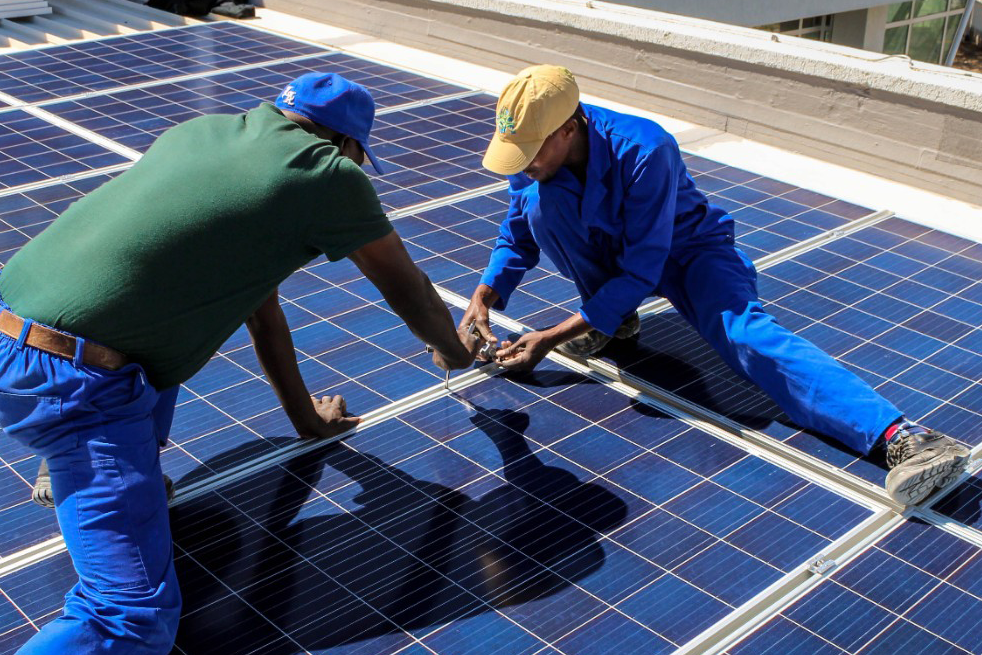By Stephen Kansuk, Programme Analyst, UNDP Ghana
How Ghana is strengthening its climate plan
September 7, 2020
Photo: UNDP Ghana
The clock on the UN’s Decade of Action has started ticking fast and 2020 marks a critical five-year milestone for Ghana under the Paris Agreement. The Paris Agreement is the best chance we have to transition our country to a climate-resilient, green economy with significant development dividends. With the first five-year milestone of the Paris Agreement approaching later this year, many countries deem it essential to assess and potentially accelerate progress towards achieving the climate goals under the Nationally Determined Contributions (NDCs). With support of the United Nations Development Programme (UNDP), through the UNDP NDC Support Programme and Climate Promise, Ghana has begun the process of revising its NDCs primarily to ensure greater alignment with current national development objectives.
What is in Ghana’s First NDCs
Ghana’s First NDCs sought to reduce emissions by 15 to 45 percent below business-as-usual scenario by 2030 and strengthen climate resilience in close alignment with its development priorities. In all, 20 mitigation and 11 adaptation actions were outlined to take place across seven priority economic sectors - energy, agriculture, industry, transport, waste, and forestry and other land use.
The 20 mitigation measures have strong development imperatives and aim to scale-up renewable energy; promote clean cooking and lighting; double energy efficiency in households and industry; promote mass urban transportation; reduce emissions from deforestation and forest degradation (REDD+); and promote alternative solid waste management.
The 11 adaptation measures aim to build resilience in vulnerable agriculture landscapes; enhance value addition in the utilization of forest resources; promote resilient infrastructure; promote early warning and disaster prevention; manage climate-induced health risk; promote integrated waste management; and address gender considerations.
Ghana NDCs Revision Strategy
The Government of Ghana is undertaking a diagnostic analysis to understand the implementation status of each of the 31 NDCs actions outlined in the First NDCs. This is a crucial element of revising and enhancing the NDCs. Ahead of this analysis, the government, with the support of UNDP and other partners, has been strengthening planning and implementation mechanisms important for NDCs implementation, such as the NDCs Implementation Plan, the NDCs and REDD+ Financing strategy, NDCs emission registry and advancing its cooperative approaches with Switzerland under Article 6.2 of the Paris Agreement, as well as the development of the National Adaptation Plans (NAPs) among others. Ghana is now looking at the following elements to strengthen its NDCs:
- Developing multi-sectoral and gender-responsive NDCs implementation plans with accompanying climate finance strategies for public and private finance;
- Integrating gender equality considerations into existing planning and policy instruments and increase institutional capacities through training and coordination platforms;
- Establishing a robust monitoring and transparency system to track progress in the seven NDC priority sectors;
- Revising emission projections for the energy and waste sectors, including the extractive industry;
Financing the NDCs
The investment requirement for the 31 NDCs actions is estimated at US$ 22.6 billion over a 10-year period. Most of this investment will need to come from international public funding and private capital. It is therefore critical to consider innovative financing models such as blended financing, green bonds and carbon financing for development. The Ghanaian Swiss carbon project based on Internationally Transferred Mitigation Outcomes to implement Ghana’s National Energy Access Programme and the Carbon Payments for Development (CP4D) Facility currently being developed by UNDP will be critical in driving investment for the implementation of the country’s NDCs. The CP4D seeks to incentivize private sector investment through performance-based payments for the implementation of small and medium projects contributing directly to a country’s conditional NDCs and blending private and public finance. The aim is to stimulate the de-risking function of public finance in attracting private sector entrepreneurship and finance, and thus support low carbon economic initiatives in developing countries in line with their NDCs.
Looking ahead
UNDP like many other development partners recognizes that COVID-19 will present significant challenges in the fight against climate change and the NDC enhancement process itself. However, at the same time, the COVID19 socio-economic response and recovery efforts present opportunities to engage stakeholders including the private sector, wealthy families, philanthropic organizations and others, in a whole of society approach to build back better and design bold and long-term climate actions to keep global temperature rise below well two degrees.
In line with achieving the Paris Agreement goals, UNDP’s NDC Support Programme, with its partners such as the European Union, Germany and Spain and the NDC Partnership continue to partner with Government of Ghana to implement Ghana’s NDCs.

 Locations
Locations



